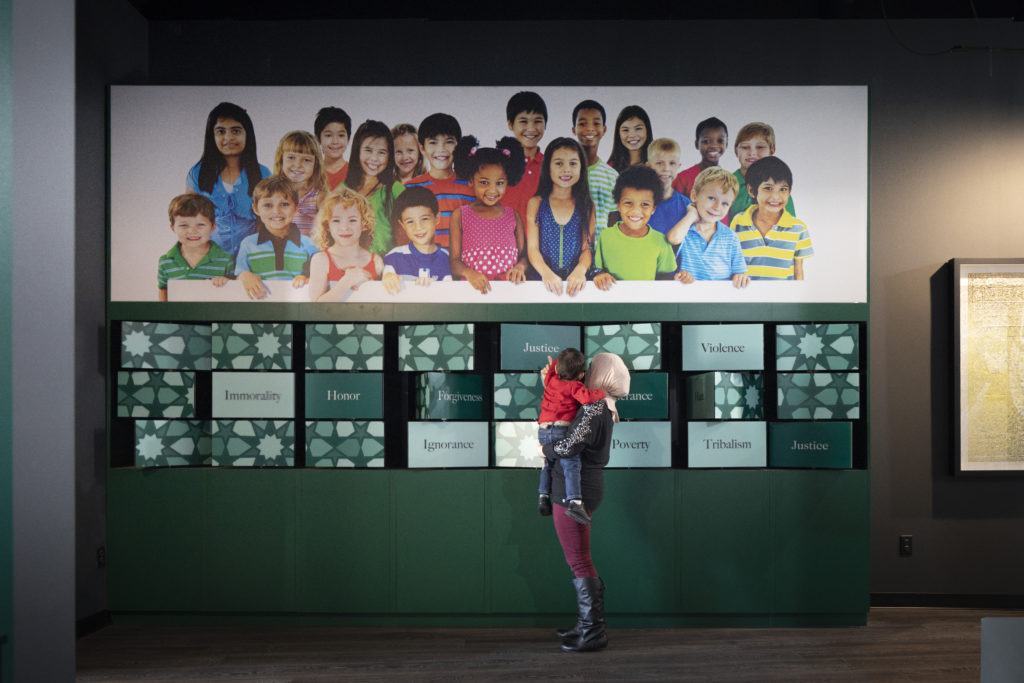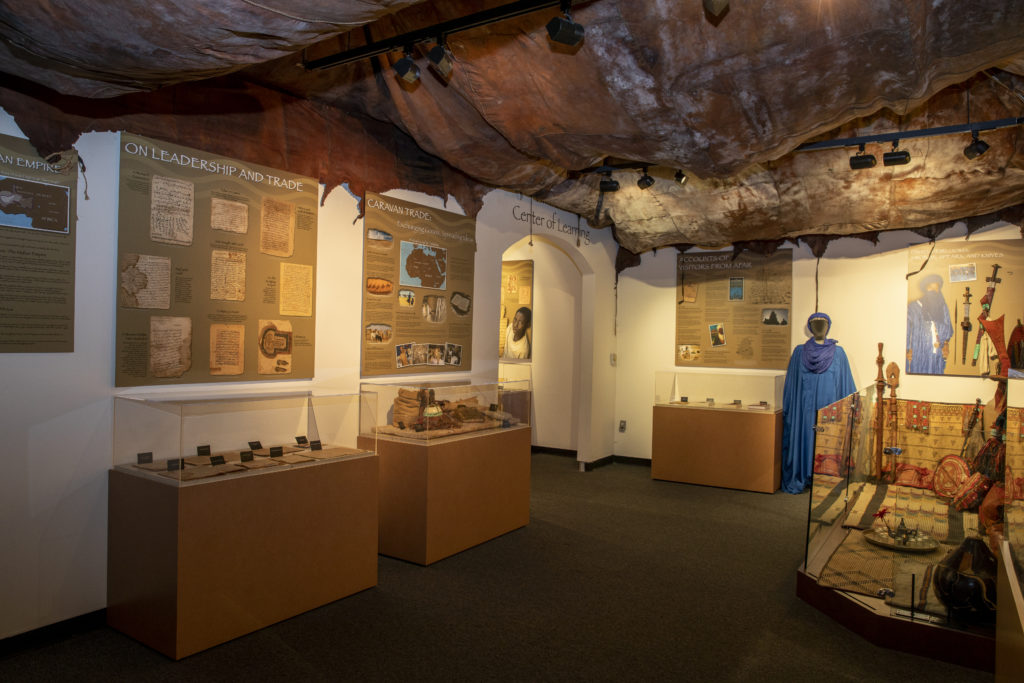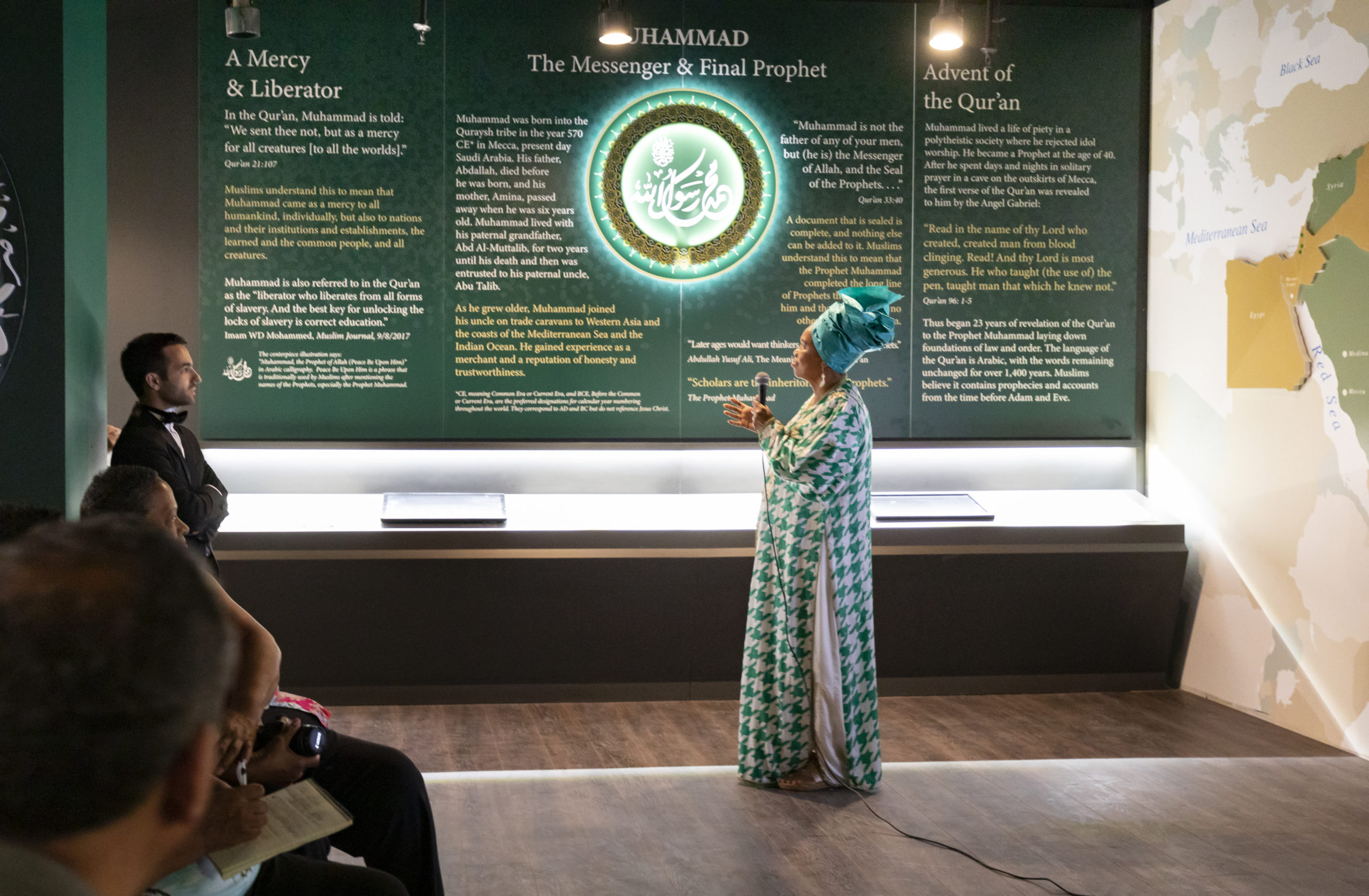In April 2001, a small group of Jacksonians visited the Majesty of Spain—an international touring exhibit at the Mississippi Arts Pavilion in the Art District in downtown Jackson. However, the exhibit left out more than 700 years of Islamic civilization from its storyline.
In response to that void, Emad Al-Turk and Okolo Rashid founded the International Museum of Muslim Cultures, which was founded in late 2000. In conjunction with the Majesty of Spain exhibit, the museum premiered its first major exhibition, “Moorish Spain: Its Legacy to Europe and the West,” which attracted more than 2,000 visitors a month.
The museum is continuing its work with the launch of its 2021-2027 National Tour for its two signature exhibitions, which are “The Legacy of Timbuktu: Wonders of the Written Word” and “Muslims with Christians and Jews: An Exhibition of Covenants and Coexistence.” The former exhibit debuted in 2006, and the latter debuted June 28, 2019, and will run until April 2021.
“Muslims with Christians and Jews,” curated by Lina Ali, Jeanne Luckett and Okolo Rashid, showcases the peace-building leadership of Muhammad, who prepared the first constitution in history for his multiethnic, multiracial, multilingual and multi-religioius Commonwealth, the website says.
“Taking visitors back to a time when people of many faiths lived side-by-side and worshipped in peace, the exhibition presents historical covenants and treaties that Islam’s Prophet Muhammad (Peace Be Upon Him) made with Christians and Jews living amongst each other in the city of Medina,” the website describes.

The exhibit will also explore the historical and current relationship between Islam and America, as well as highlight the views of the U.S.’s founding fathers and their knowledge of Islam, the site reads.
“This theme is further explored through the struggle for freedom in America, featuring the voices of African American Muslims, and connecting this struggle to today’s Islamophobia, and the continuing struggle for civil and human rights in the United States of America,” the museum’s website says.
“The Legacy of Timbuktu” highlights Islamic West Africa’s sophisticated culture of scholarship, wealth and empire-building, which contrasts with the historic narrative that most times begins with African enslavement in America.
The museum partnered with the Mamma Haidara Memorial Library in Timbuktu to curate the exhibit. The library, which is the largest of 22 private libraries in Timbuktu and holds more than 9,000 ancient manuscripts, loaned IMMC 39 manuscripts that contain calligraphy, colorful illustrations and a variety of subjects, the site says.
This is the first time the manuscripts will be displayed for a national audience through a traveling exhibition. Along with the manuscripts, visitors will get to experience a combination of African and Islamic heritage through videos and audio production, artifact displays, interactive media, models and artifact displays, the museum’s site says.
“Understanding and educating about and for human dignity is fundamental to combating injustice and intolerance, and is key to achieving equity and healing,” Co-founder and President of IMMC Okolo Rashid said.
“IMMC is uniquely positioned to address this special moment in our history with our multiple venues and approaches to engage and educate our local community as well as national and global audiences through our virtual and digital platforms,” she added.

Along with the launch of the museum’s national tour, it will also host a Zoom webinar, “Exploring African Islamic Contributions to Civilization,” on Thursday, Dec. 17 at 6 pm. The panel discussion will include museum co-founders Okolo Rashid and Emad Al-Turk, University of the District of Columbia President Dr. Ronald Mason. and Tougaloo College and Millsaps College religious studies professor Dr. Loye Ashton, a press release states.
“This webinar will serve as a kickoff to an extended webinar series in partnership with California-based Muslim Public Affairs Council, focusing on social justice and equity, diversity and inclusion and how we are uniquely positioned to address this special moment in America and the world,” a press release reads.
The International Museum of Muslim Cultures has worked across the divide of race, class, gender, ethnicity and religion to bring people together to get a better understanding of our shared community, the co-founder said.
“IMMC’s foundation is built on the strategic alignment of the African American and diverse immigrant Muslim communities’ shared action and engagement with the broader community,” Rashid added.
The International Museum of Muslim Cultures is on the second floor of the Mississippi Arts Center on 201 E. Pascagoula St. “The Muslims with Christians and Jews, An Exhibition of Covenants and Coexistence” is housed at the museum’s satellite location at 101 Capitol St. To attend the International Museum of Muslim Culture’s webinar, you can register here.
Editor’s note: Museum co-founder Okolo Rashid is on the advisory board of the Mississippi Free Press.






